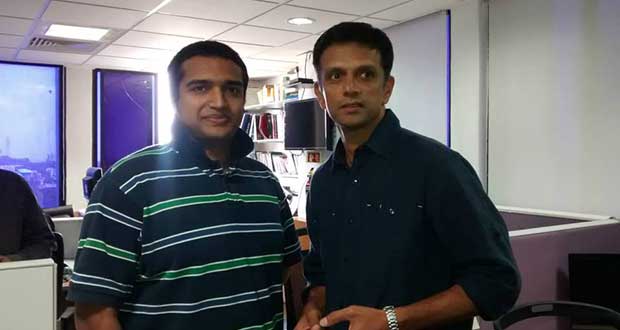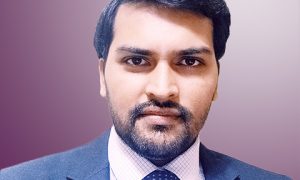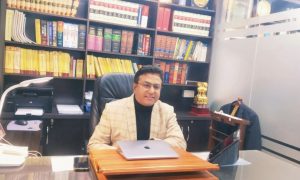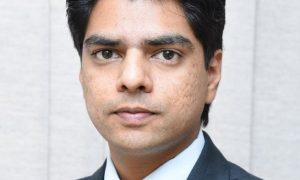Bishen Jeswant graduated from National Law Institute University, Bhopal in 2011 and is currently working as sub-editor with ESPNCricinfo. He decided to leave his lucrative career with Trilegal to pursue his passion for cricket. He is also qualified to be a coach at Karnataka State Cricket Academy.
In this interview, we speak to him about:
- Balancing academics and extra-curricular activities
- His experience with Trilegal
- A typical workday at ESPNcricinfo
What got you into legal studies?
The reason I picked law was because I was attracted to public speaking, but you realise soom enough after entering law school that public speaking is but a minor aspect of good lawyering. So, while I may not have decided to pursue law for the right reasons, it was a happy accident because I thoroughly enough the critical reasoning and logical thinking aspects of law over the course of my five years.
I was part of the last non-CLAT batch and we wrote a whole gamut of exams in the hope of securing admission to at least one of the top law schools. The NLIU-Bhopal entrance paper was leaked that year (2007) and we had to take it twice.
How would you describe your fresher year at NLIU?
The term fresher is often associated with ‘ragging’ and I will admit that I was slightly apprehensive when I joined college. However, I strongly feel that the ‘Personality Development Program’, as our seniors called it, was an integral part of settling in, making friends and being able to call NLIU home. There was nothing so untoward that it could not be dealt with by a positive attitude and an open mind.
Once settled in, the first year is the time to explore and make use of every opportunity that law school provides, and it does provide you with a whole lot. Whether mooting, debating, client counselling, research paper writing or MUNs, the time in the first year was spent in turning every possible stone to assess and determine the type of activities that I wanted to pursue during the five years, and to understand the bigger picture of what I wanted to achieve.
What is your advice to budding mooters?
(Bishen has participated in various moot court competitions like Pro Bono Enviro Moot Court Competition, National Corporate Moot Court Competition and NUJS Herbert Smith Moot Court Competition. He has also won Best Speaker awards in few of these competitions.)
Apart from having strong research, I think the most important aspect of mooting, and even arguing in a real courtroom, is reading the judge. Whether the decision goes your way or not is dependent on whether the adjudicator is adequately satisfied. Within the first few minutes of the oral rounds, it is important to gauge whether the judge is the kind of person who likes to be bombarded with law, or whether he prefers crisp logical arguments, whether he appreciates lawyers being deferential etc. I’ve also felt that a good argument is one that is not only legally and logically sound, but one that is well presented, clearly structured and easily comprehensible. It is very important to modulate your voice, change your pitch, adapt your tone, and vary the pace of speech depending on the significance of the point that you are arguing and the emphasis that you would like to lay.
Tell us about the 1st All India Moot Court Conveners Conference at NLIU, Bhopal, that you were instrumental in organising as Convener of Moot Court Association.
During my stint as MCA Convener, I felt that it was imperative to utilize my position for the betterment of mooting, and the growth my University. I became Convenor in my fifth year, and had come across various shortfalls in the country’s mooting structure through the course of my first four years. Issues ranging from the scale of marking, moot formats, fairness in matchups, seeding of teams, etc. I felt that the only way to correct these issues was to bring all those people who matter into one room and pass resolutions to standardize mooting across the board, and this is how the Guidelines for Uniform Moot Practices (GUMP) were formed, with the help of Moot Conveners from around twenty law schools, as well as Surana & Surana, a law firm that organizes around ten moots in a year, including Stetson, Jessup and the like.
We conducted the 1st NLIU Intra University Client Counselling Competition as well that year, with the intention that this would become a national event in subsequent years, making NLIU the first national law school to have its own client counselling competition.
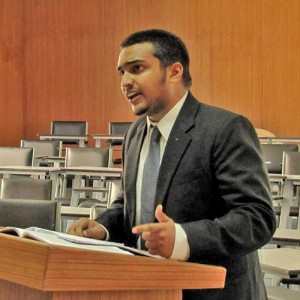 How did you manage the academic pressure along with your extracurricular interests?
How did you manage the academic pressure along with your extracurricular interests?
There is plenty of time in college to focus on academics while doing other activities side-by-side, all one needs is the drive. For me, it was important that I undertook as many extra-curricular activities as possible during my five years. I acknowledged that this attitude would not allow me to be at the top my class academically, but I set myself a target to maintain an ‘A’ Grade (or 70%) throughout the five years. I eventually finished with about 71%, with the batch topper scoring about 75%. It is therefore a question of simply setting targets, and having the discipline and focus to achieve them.
There is so much time that despite devoting the required amounts towards academics and extra-curricular, there is still enough left to play sports, watch movies, TV shows and spend time with friends. This may seem harsh, but those who claim that one cannot excel in extra-curricular activities without compromising on their academics, are simply looking for an easy excuse.
What skills have you acquired from these internships and how helpful have they been in your legal career?
Internships serve the limited purpose of exposing you to the professional world. No internship can prepare you for what a corporate lawyer or litigating advocate will have to deal with on a daily basis, but it can certainly provide you with the exposure required to soften your landing. Students in law school spend too much time fretting about internships. While having good internships on your CV will probably help you in landing a job, it is not worth agonizing over. The important thing is to set out your goals and ambitions and focus on carrying out the right processes, the internships and everything else will follow.
How did you secure your appointment with Trilegal?
I thoroughly enjoyed working with Trilegal, a big firm with a young culture, professional outlook and some great people. My two year stint with Trilegal taught me a lot about the need for discipline in the professional sphere, the need to pay attention to detail and the need to communicate efficiently with your peers, superiors and subordinates. I worked in the field of employment law and one of challenges was deciding whether I should specialize so early in life. I eventually decided that I would be an expert in one field right from the start rather than be a jack of all trades. It helped that the subject matter itself was quite interesting. Other challenges of the job are around meeting tight deadlines, putting yourself in the client’s shoes, being able to analyze issues from the other party’s standpoint etc., all of which you learn to deal with on the job.
What prompted you to leave a lucrative legal career and join ESPN?
The answer to this question is very simple. I have always been extremely passionate about cricket and have dreamt of working in the sporting sphere. I had spent two years working with a firm, and realized that if I would not be able to attempt a career switch few years down the line – for various reasons, beginning with the fact that most organizations would not be willing to hire a 30 year old at an entry-level job and further that I would have become too comfortable in my legal job to experiment too much or make too many compromises. The bottom line is that I would have regretted not giving my passion a chance, and it was therefore a very simple decision to make.
How did you approach the ESPN for this job?
I didn’t have any contacts at ESPN, so I had to go about this the hard way. I penned a few articles to create a portfolio of sorts and decided to use this to apply to a few places. I had applied to CricBuzz, ESPNCricinfo and had even written to Anil Kumble, who was the then President of the Karnataka State Cricket Association. I had made these applications in the hope that I would hear back from at least one of them, but somehow, I heard back from all three, and ended up being in a position to choose where I wanted to work. I chose ESPNCricinfo because, apart from being a market leader, this is a site that I have been using for years and was therefore close to my heart. There was an opening in the stats team here, and I was to write some stats based articles to demonstrate my aptitude and statistical bent of mind, all of which thankfully worked out well. The rest is history.
Tell us about your workplace and what a typical workday in your life looks like?
A typical workday could be broken up into two types – match days and non-match days. On a match day, I will usually provide continuous live stats for viewers based on the current trends in that particular game. At the end of a game (or a day, in case of a Test match), I will usually publish a statistical report assessing the day’s play. Not everyone in the office will be covering the same match, so all of us have a personal TV as well as a laptop at each of our workstations to enable to us carry out our individual duties. On a non-match day, the nature of the articles that I write will usually be more analytical and not related to a particular match, such as on whether ‘Dhoni is statistically India’s best captain’, or whether ‘Hashim Amla is statistically the best ODI batsman’. Perks of the job include being able to meet the Dravids, Chappells and Laxmans of the world on a regular basis and being able to interact with them.
You have been an active cricket player and also work as a coach? How did you manage to find time for pursuing these activities?
I had coached at Jawahar Sports Club in Bangalore and cleared the KSCA State Panel Umpires exam as well as the KSCA Level “O” Coaches Exam. The answer to how I found time is a continuation of a previous answer – the time is there, it was only a question of whether I have the drive and discipline to make use of it. In this case, I was doing something that I love, and therefore, making time did not feel like a chore. I’ve always believed that most things in life are about showing initiative and taking that first step, and once that is done, the rest falls into place slightly easier. To make the effort sweeter, all of these activities that I undertook eventually helped in bagging the ESPN job.
What would you be your suggestion to law students keen on pursuing a career in sports?
Whether my decision was right or wrong will depend on how a reader views it, but here are my two cents anyway. At any stage in our life, when we choose to do or not do something, we must ask ourselves whether we are likely to later regret our actions. If the answer is yes, we need to take steps to ensure that there is no regret later.
Writing a blog is a good way to start building your portfolio while in college. This is something that I didn’t do, and had to therefore write articles at a later point, under a time crunch and significantly more pressure, in order to set out on my mission. Also, students are sometimes under pressure to take up a legal job because they have invested five years and a lot of money on education. However, if you find that you true calling is not law, it is only smart that you don’t waste more time in a legal job. However, if you are not absolutely certain about your career, I would suggest that you undertake a legal job for at least a couple of years so that it becomes that much easier to return to the profession at a later point, should you choose to do so.

